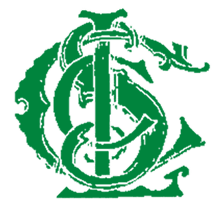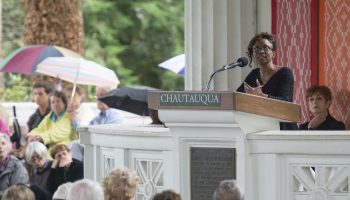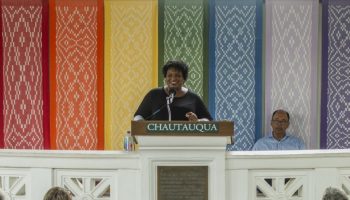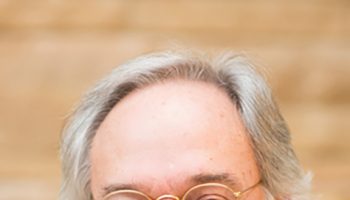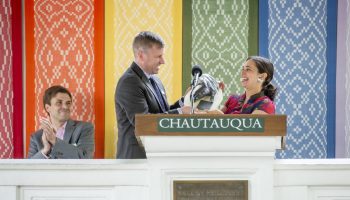“What’s in a name?” Shakespeare asked in Romeo & Juliet. He went on to answer, “That which we call a rose/ by any other name would smell as sweet.”
As it turns out, there is an awful lot in a name, particularly the name of a place. An entire field of academic study called toponymy is devoted to explaining the origins and meanings of place names.
Norman Carlson, the longtime collections manager at the Fenton Historical Center in Jamestown, is something of a local toponymist. He has lectured extensively on how communities in Chautauqua County got their names, and at 3:30 p.m. Friday, June 29 in the Hall of Philosophy, he will discuss “The Origin of Local Place Names” as part of the Oliver Archives Heritage Lecture Series.
“I don’t care who you are or where you’re from, you probably have not heard this before,” Carlson said recently about the colorful stories he spins in one of his most popular presentations, which he modifies for specific audiences.
Carlson was born in Jamestown and raised in Busti (pronounced BUST-eye), a community his family settled in more than a century ago. It was named after Paolo “Paul” Busti, a native of Milan, who became the principal agent in western New York for the Holland Land Company, a syndicate of Dutch investors who ultimately purchased from the Seneca about five million acres in central and western New York state and western Pennsylvania in the late 1700s and early 1800s. In Amsterdam, Busti married an English-Dutch woman named Elizabeth May, for whom, Carlson says, the village of Mayville was named.
“Some say Mayville was named after Busti’s daughter, May,” Carlson said dismissively. “But they are wrong. He had no daughter!”
And we’re just getting started.
No fewer than six Chautauqua County communities were named for signers of the Declaration of Independence. They are:
Stockton, named for Richard Stockton of New Jersey, a close friend of George Washington and on whose land Princeton University was partially built.
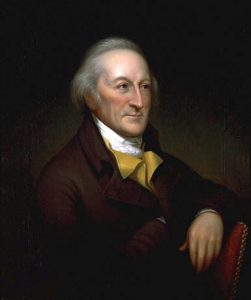
Carroll, christened in honor of Charles Carroll of Carrollton, a wealthy Maryland planter known contemporaneously as the “First Citizen of the American Colonies.” He also lived the longest of any of the signers and, as a speaker of five languages, the best-educated among them.
Clymer, whose name commemorates George Clymer of Pennsylvania, one of only six people who signed both the declaration and the Constitution.
Ellery, named after William Ellery of Rhode Island, a lawyer whose claim to fame is that his signature is second only in size to that of John Hancock.
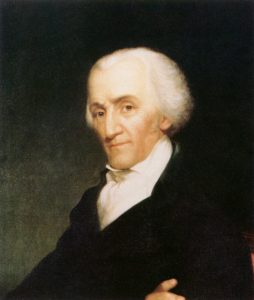
Gerry, so called for Elbridge Gerry, the fifth vice president of the United States for whom the word gerrymandering — the manipulation of the boundaries of an electoral constituency to favor one party or group — was named after he maintained his position as governor of Massachusetts by redrawing district lines in his own favor.
Sherman, whose name honors Roger Sherman of Connecticut, a lawyer and Founding Father.
What is the oddest place name in Chautauqua County? Carlson nominates the facetiously named No God Hollow, an area on the boundary of Ellington and Cherry Creek.
Which brings us to Chautauqua itself, perhaps the most mellifluous and most-argued-about place of all. How did Chautauqua get its name?
Carlson refuses to spill the beans ahead of his presentation.
“I’m saving the meat of that,” he said. “I’ll devote the final 15 minutes of the lecture to that. It’s very complex and prone to getting garbled and confused.”
Thanks to the tireless debunking of Jon Schmitz, the Institution’s archivist and historian, we can all safely assume that the solution to this mystery will not involve “a bag tied in the middle.”

